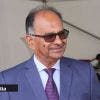
Electoral voters see political candidates as brands nowadays. Candidates are seen as a product now and on the other side voters are seen as a consumer. In every election cycle, new voter-consumer sifts through a barrage of political promises and policies and learns about political brands in order to decide whether to vote or not vote, and which candidates and political parties to support. Some vote for their adhesion, faith, belief, caste, religion, likeliness, belongingness and another group might not vote but shall surely sponsor an election for their personal interest like business making, acquisitions, secure contracts and the list goes on.
During my recent strategic and legal administrative participation in the latest American election, I observed that Americans have had confidence in each other’s ability to make informed political decisions and voter-consumers have partial knowledge of political brands. Whether they are sophisticated, informed or even cynical, they are not only aware of a political brand, but also about perceived benefits and drawbacks of the brand — its image, their feelings towards it and their experiences of the brand in action. The failure or success of a political brand is therefore increasingly tied to its brand quality, that how it positions itself in the electoral marketplace, but also, fundamentally, how it is seen and perceived by voters.
Perception or blinded perception plays an important role in an election.
Is it easy to choose? Voters tend to buy into political brands whose personalities most resonate with them. Recent American elections have shown us that voters are drawn to political personalities that are exciting, bold, attractive and even a bit irreverent. They are also enticed by the affable candidate with whom they feel they can relate, have a drink or engage in a conversation. In other words, voters consider likeability in a political brand and tend to qualify candidates on the basis of personality when making their political choice. But all these play under most common term which we all know and adhere to it – The Leadership.
Leadership is seen as the process of social influence in which one person can enlist the aid and support of others in the accomplishment of a common task. The problem of leadership today is that there is usually a great rift between the corporate intentions and the political brand and individual leader personalities and personal brands. Brands are strategic assets and key to achieving a competitive advantage.
Publicité
Brands can be seen as a heuristic device, encapsulating a series of values that enable the consumer to make quick and efficient choices. More recently, the notion of a political brand and the rhetoric of branding have been widely adopted by many political parties as they seek to differentiate themselves and this has led to an emerging interest in the idea of the political brand. Right now, my team and I are preparing the future candidate for the next general election. The task is heavy but it paves its way. A series of tools and exercises are being used to grasp the momentum and gain the road to success - a definite one! The candidate is being pushed to extreme limit, at times challenging himself/herself and sometimes have unrealistic behaviours depicting from the worst to the best.
The application of the branding concepts and frameworks to the political environment is of growing interest. Branding is a useful concept to understand political parties as corporate brands and candidates as political brands. There have been to calls to investigate the utility of applying branding to politics. We work towards the moto of the party in line with the prospective candidate as a whole for the party branding, and at times the leadership branding. Recently we organised a team re-engineering exercise for the political party, over two days, with other key candidates where a series of communication overlap come out of our exercises. We addressed the issues and reframed the unframed. A common strategy is already in place and is being put into practice. That’s where the difference comes! Having a strategy in place, especially in political parties, does not mean it is being used – it only creates a difference when it is being put into practice. Let’s be realistic and question how many political parties in the world adhere to their political party moto? Do they really mean or walk the talk? Do they answer a few or none? How many political parties keep their words once into power? The after effects come either to the party’s leader or the party itself. This is where the voters start feeling the frustration and start criticizing through available Medias.
Today, it is an absolute requisite for a political party and its respective leader to be branded since they represent or going to be representative of a nation. We need to bear in mind that with the digital trends and currently the Covid-19 pandemic, we are experiencing a global trend of information technology optimization which is fast and voters tend to express their grief in being it on social media or any other form of tech/online tools. Some political parties have never shown their willingness to analyze the comments, the griefs, the drawbacks, the perceptions and so on. The data collected in itself, is a tool which helps the party to correct or reframe the party’s strategy in alignment of expectations. We need to bear in mind that nowadays, we are having more and more educated voters who are very apt to social media platforms and categorically, this helps voters to make and take decisions. Voters look for the inspirational ingredient in their leaders, how inspiring they are, how alert they are, and what their trend will be, going forward. Subsequently, it is quite hard to influence people for votes now, and on top our researches has shown that at time voters are unlikely to go to the polls now.
As a political consultant in branding and rebranding, I personally use few tools in order to start the process with quite strict guidelines which are very critical in most aspects of the going trends, but also proved successful, despite few resistances from candidate/s. We work around the effective traits needed, which ultimately creates momentum and definite success. It sounds crazy but worth it, especially when you are changing the candidate/leader profile radically and incrementally. He or she is set to tasks.
Voters put a high premium on the character and credibility of a political brand when making their political choice. Despite declining trust in government, voters largely desire to be represented by political brands of good repute. Like personality, they respond to political brands that share their fundamental beliefs, values and ideals and people who see the world as they do. For example, in the 2016 presidential election, voters placed a high value on trust and character and felt they could not trust Hilary Clinton. A significant section of the population instead voted for Donald Trump, even though it has been said that he brought to the fore contrary values such as racism, sexism and bigotry. Contrastingly, many American voters were inspired by the character and candidacy of Barack Obama and shared his fundamental belief in the values of hope and change and his commitment to community and morality. The day or time, the leader in question believes in the internal change within the party for a long concept winning rivalry and starts the branding philosophy, that’s the start for the WIN. My team and I, being the advisors for the next future electoral party candidate, we have said what need to be said, the blunt and ugliest truth, right on the face. If the leader is adaptive and receptive, the winning factor is there as a seed, but if the contrary emancipates, so it’s the last day of winning concept or better luck next time by trial and errors.
I believe that of all the facets of character, integrity is the most critical because it “involves our deepest issues of honesty and motive.” I see empathy as far more critical to good leadership rather than knowledge, skill or ability. Character-based leadership matters to voters, so they tend to consider candidates who convey admirable ethics such as decency, civility, integrity, faith, conscience and empathy. So without these attributes voters would judge you on the D-day- which is the doomed day, whether you like or not, it’s a proven fact, unless some are dumb – likely to be the dumb of the dumbness!
Equating to personality and character is communication skills and it is brand story of a political candidate. Voters consider how well political brands “talk the talk” before deciding whether to buy into their political agenda. Voters respond or need to respond political brands with the ability to use excellent communication practices to earn their trust and confidence. For example, Barack Obama’s exceptional capabilities as a speaker endeared him to voters during the 2008 campaign and throughout his presidency. The success of Obama’s leadership communication skills was the extent to which audiences could understand his story, his vision and how he was able to connect with people on a humanitarian level.
Audiences now crave for authenticity from speakers because it indicates that they truly believe in their message. In a landscape where transparency is more valued (and yet harder to come by) than ever before, audiences are wary of manipulation and spin from inauthentic speakers. For example, Obama, however, has developed a knack for addressing an audience of thousands with the same genuine affect and tone he might use in a one-on-one conversation with a colleague.
Voters also buy into the political brand with the best narrative and no gimmicks, the one whose story manages to break through the noise. There is no question that people can be seduced by a story. We all know that the stakes of telling good stories in politics is winning or losing. Good stories win. Campaigns without a story lose, without fooling the population. Voters respond to political brands who clearly and simply communicate who they are, what they are about and whose narrative inspires them to care, especially from the Party Leader.
Many voters consider the platform and agenda of political brands before casting their ballot. A political platform formally outlines the principal objectives and issues supported by political brands. A primary concern of voters is the focus of an election campaign and the goals and purpose of a political candidate, essentially what can be accomplished once in office.
For example, voters take deep interest in, and have a stake in, core platform issues that impact their daily lives. Voters ask what’s in for them. While many voters care about bread-and-butter issues such as education, healthcare and the economy, voters also care about bigger-picture concerns like climate change, social justice, economic development, job creations, welfare state and the list go on. They therefore tend to vote for those political branded leaders they trust to resolve them.
Competence weighs on the minds of voters as they go to the polls, that’s the ongoing changing trend, which partly brought down Donald Trump. Voters have a long list of concerns and they tend to seek out candidates they believe can competently tackle the nation’s most pressing problems. In short, strong, decisive, capable leadership is central to voters’ concerns. They want to know that their vote is going to political brands they deem knowledgeable and capable, and who have the intelligence, skills and experience to lead. Voters tend to reward political brands whom they perceive will keep their promises and deliver results. Many voters see their vote as an investment and rightly expect a return on that investment. Voters must rely on a candidate’s track record.
Paradoxically, having a long history in politics does not equate to competence and capacity. Leaders should listen to the population wisdom. Political candidates often wave their long experience in political service, their understanding of how the government works and their ability to wade through the complexities of the bureaucracy. My research reveals that this can be a double-edged sword, as voters perceive long tenure in politics as being part of the problem rather than the solution. As we say the rotten candidates. Voters need to see change, whether progressive or innovative.
Historical politics may not be given much weight- now, gender seems to play a significant role in voters’ perceptions of competence and capabilities. Voters are seen to hold women political brands to a different standard and the going trend shows that voters view prospective women candidates differently, whether at leadership level or candidate level. Despite though there is a sense of vulnerability. Nowadays, women lead big reputed organisations globally and the sense of belonging towards the public is more adamant. We have seen it in various countries that whenever a Party’s leader is going for any congress /meetings etc., they are being accompanied by their respective wives, as this plays a psychological aspect in voters’ brain and mens rea, as it portrays the candidate as a ‘family man’. We have also observed that when certain leaders were unable to grasp the momentum with voters, their legitimate came in the forefront, and at times overturned the situation to a positive one.
The day political leaders start embracing the branding concept not just for the leader but for the respective candidates and future candidates, this is where, the party creates the legacy for long term mandates, as voters hardly believe in promises and blame game now. Voters want to see the walk talk concept, they want the elected candidates to show more proximity to the party mandates and not only the country mandates.
From a politician’s or political party’s perspective the strategic planning and management of a political brand is inherently a market-oriented practice. Conceptually, a political market orientation encourages organizations to consider and respond to explicit and latent needs of multiple stakeholder groups while managing the structural and procedural elements of their strategic plans and practices and they should be aligned to the population expectation.
By Dr Jayshan Keejoo International Arbitrator and Culture Change Expert- UK & USA

Notre service WhatsApp. Vous êtes témoins d`un événement d`actualité ou d`une scène insolite? Envoyez-nous vos photos ou vidéos sur le 5 259 82 00 !















![[Info Soirée] : «Nou priorite reget pouvwar d’achat ek problem deviz»](https://defimedia.info/sites/default/files/styles/square_thumbnail/public/thumbnail_151124.jpg?itok=U8uBXsPd)
![[En images] Concert au Plaza](https://defimedia.info/sites/default/files/styles/square_thumbnail/public/ttttttt.jpg?itok=KWvY9NoR)




